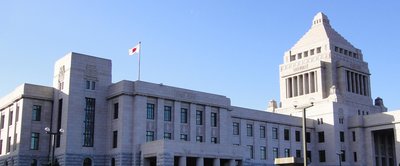Written Request to Japanese Government

Written request regarding benzodiazepine type drugs (Submitted: 28th October 2015)
On 28th October 2015, Medwatcher Japan submitted a written request, regarding benzodiazepine type drugs, to related corporations, the Ministry of Health, Labour and Welfare, the Ministry of Education, Culture, Sports, Science and Technology, and related academies.
Benzodiazepine type drugs exert the following actions: anxiolytic, hypnotic, myorelaxant, and anticonvulsant. Most of these drugs sold in Japan are used as anxiolytics and hypnotics.
Although benzodiazepine type drugs exert the above actions, within just a few weeks or months of regular use, even on therapeutic doses, tolerance develops, which can then lead to physiological and psychological dependence. The forming of physiological and psychological dependence can cause many problems including: memory impairment, cognitive dysfunction, confusion, hallucinations, paranoia / delusions, seizures, emotional detachment / depersonalization, motor sensory disturbances etc. Also, cases where these withdrawal symptoms become so severe that they impact significantly on people’s daily lives are not uncommon.
Considering the risks of tolerance and dependence, European countries and the United States have adopted controls; whereby it is basically recommended that these drugs are not be prescribed for any more than 2~4 weeks. However, in contrast to this, Japan has no such controls over the duration of continual prescribing, and there are many cases where benzodiazepines are co-prescribed in large amounts. Subsequently, it seems sufficient to say that Japan likely has the highest prescription number per unit of population in the world. It has also been pointed out that behind the current state of prescribing exists a general lack of awareness, regarding benzodiazepine type drugs and associated risks, on the part of medical workers in Japan including psychiatrists.
In recognition of this, our organization proposes to improve prescribing practices and the level of awareness shown by medical workers in Japan with regards to dependency on benzodiazepine type drugs and withdrawal symptoms. For this purpose, we have carried out investigations and inquiries while engaging in talks with psychiatrists and patients; leading to the following points being raised in this written request.
Matters Pertinent to Request:
1. Revision of package inserts to include:
1.1 Clearly listing the risks of dependency on therapeutic doses, withdrawal symptoms, and polypharmacy in the warning column.
1.2. Stating diazepam potency equivalents.
1.3. Placing limitations on duration of prescribing
2. Compiling, distributing and publicizing on the internet information for patients to maintain the right of informed consent.
3. Ensuring benzodiazepine type drug dependency is noted on dispensary forms.
4. Establishing and developing specialised benzodiazepine type drug dependency treatment facilities.
5. Providing training for all medical workers involved in the treatment of benzodiazepine type drug dependency.
6. Providing further educational training in all medical schools and pharmaceutical faculties regarding benzodiazepine type drug dependency.
NB: To patients currently on benzodiazepine type drugs and families.
Regarding reduction and withdrawal, you will need to work closely with your physician, as caution must be exercised when making decisions. For this purpose, it is advisable to use The Ashton Manual referred to in this written request as a point of reference.
Contrary to intentions, it can be dangerous for patients to reduce, or withdrawal, using their own judgement; therefore, it is advisable to refrain from this.
Please be advised that our organization is unable to accommodate individual enquiries or assist with the introduction of treatment facilities.
Top of Page
28 October 2015
Related Corporations (see attachment)
Minister of Health, Labour and Welfare: Hon Yasuhisa Shiozaki
Minister of Education, Culture, Sports, Science and Technology: Hon Hiroshi Hase
Japan Society of Sleep Research Director: Mr. Hiroshi Ito
The Japanese Society of Psychiatry and Neurology President: Mr. Masatoshi Takeda
Medwatcher Japan
Chair: Toshihiro Suzuki
160-0022 Tokyo Shinjuku Ward Shinjuku 1-14-4 AM building
TEL.03-3350-0607 FAX.03-5363-7080
yakugai@t3.rim.or.jp
http://www.yakugai.gr.jp
Written request regarding benzodiazepine type drugs
Matters per request
Our organization herby requests the following matters regarding benzodiazepine type drugs.
Top of Page
1. Request to Relevant Corporations
(1) ベンゾジアゼピン系薬物について、以下の点について添付文書を改訂すること
ア 常用量依存症と離脱症状、ベンゾジアゼピン系薬物同士の多剤併用の有害性を警告欄に明記すること
イ ジアゼパムの力価との等価換算値を記載すること
ウ 処方期間の継続に制限を設けること
(2) 患者の自己決定権を保障するため、当該薬剤がベンゾジアゼピン系薬物であること、ベンゾジアゼピン系薬物の依存性や離脱症状、適切な離脱方法を明記した患者向け説明文書を作成して、医療機関でベンゾジアゼピン系薬物を処方された全ての患者に交付させるとともに、同説明文書をインターネット上に公開すること
Top of Page
2. Request to Ministry of Health, Labour and Welfare
(1) 関係各企業に対し、上記1(1)のとおり添付文書を改訂するよう指導すること
(2) 関連各企業に対し、上記1(2)のとおり、患者の自己決定権を保障するための情報を積極的に告知するよう指導すること
(3) 薬剤情報提供文書にベンゾジアゼピン系薬物の依存症が必ず記載されるための適切な施策を講ずること
(4) 平成26年度「依存症治療拠点機関設置運営事業」において指定された全国拠点機関及び5つの依存症治療拠点機関に、ベンゾジアゼピン系薬物依存症に特化した部門を設置して専門的な治療や研究を実施させるとともに、少なくとも各県に1医療機関をベンゾジアゼピン系薬物依存の専門的治療を実施できる治療拠点機関として指定すること
Top of Page
3. Request to Academies
日本睡眠学会や日本精神神経学会は、ベンゾジアゼピン系薬物の依存性と多剤併用の有害性を周知啓発するため、所属学会員のみならずそれ以外の医療関係者をも対象とした研修を実施すること
Top of Page
4. Request to Ministry of Education, Culture, Sports, Science and Technology
ベンゾジアゼピン系薬物の依存性と多剤併用の有害性について、医学部及び薬学部における教育を強化すること
Top of Page
Reason for Request
1. Outline of benzodiazepine type drugs
1.1. Description
ベンゾジアゼピン系薬物とは、抗不安作用、催眠作用、筋弛緩作用、抗痙攣作用を持つ薬剤である(商品名については別表参照)[1]。日本国内で販売されている抗不安薬と催眠薬の多くがベンゾジアゼピン系薬物である。しかし、ベンゾジアゼピン系薬物を処方されている患者の多くが、その薬がベンゾジアゼピン系薬物であることの認識がない。
ベンゾジアゼピン系薬物は、うつ病における不安・緊張・睡眠障害に適応が認められているが、抗うつ作用そのものは存在しないため、いわゆる抗うつ剤には分類されない。
(2) ベンゾジアゼピン系薬物の薬理作用など
ア 薬理作用
ベンゾジアゼピン系薬物は、一般に脳内の抑制系神経伝達物質GABAの働きを高める作用をもっており、それにより脳内の興奮性神経伝達物質(ノルアドレナリン、セロトニンなど)の放出を減少させ、興奮を抑制するという薬理作用を有するといわれている。このような薬理作用により、不安の除去や、催眠促進作用、筋緊張の緩和作用などを発揮する。
一方で、脳内の興奮性神経伝達物質は、正常な注意力、記憶、筋緊張、協調運動、情動反応、内分泌作用、心拍数・血圧のコントロールその他多くの機能に欠かせないものである。ベンゾジアゼピン系薬物は、上記のような興奮抑制の薬理作用を有すると同時に、これらの重要な機能を損なう危険性も有している
イ 力価と代謝・排泄について
ベンゾジアゼピン系薬物の種類は非常に多く、その力価にも大きな違いがある。そのため、薬物の用量や作用の強弱を考える場合には、力価を等価換算する必要がある。高力価の薬剤を服用するほど、高用量に相当すると考えなければならない。
また、それぞれの薬剤の体内における代謝、排泄速度が異なる為、血中半減期に大きな差異があり、個人差も大きい。
ウ 耐性の発現
ベンゾジアゼピンの作用は短期間で消失し、長期的な効果は証明されていない[2]。一方、数週間あるいは、数か月間の使用により、ベンゾジアゼピンに対する耐性が生ずる[3]。ベンゾジアゼピンを慢性的に使用した場合、脳内神経細胞におけるベンゾジアゼピンが作用する部位(ベンゾジアゼピン受容体)の機能に代償的な変化が起こって感度が低下し、ベンゾジアゼピンのGABA増強作用が低下するため、興奮性神経伝達物質の活動が回復する[3]。これが「耐性」の発現である。かかる耐性の発現によって、患者は効果の持続を求めるため服用を中止することができず、時に増量が必要になり、身体的・精神的依存につながる。そして、身体的・精神的依存が形成されると、次に述べる離脱症状を生じやすくなる。
[2] COMMITTEE ON THE REVIEW OF MEDICINES;Systematic review of the benzodiazepines,Bri.Med.J. 29 MARCH.910-913 1980)
[3] BENZODIAZEPINES: HOW THEY WORK AND HOW TO WITHDRAW (The Ashton Manual)
Top of Page
2. Clinical dose dependency on benzodiazepine type drugs and withdrawal
2 ベンゾジアゼピン系薬物の常用量依存症と離脱症状
(1) ベンゾジアゼピン系薬物による常用量依存
1960年代から、ベンゾジアゼピン系薬物を中止する際に、高用量で用いられた場合に離脱症状が生じることは報告されていた。1980年代になると、常用量(「治療用量」や「臨床用量」ともいう。)でも、長期連用されることによって依存が形成されることが報告されるようになった。
かかるベンゾジアゼピン系薬物の常用量依存は、わが国ではまだ十分に認識されておらず、実態が明らかでない点も多いとされている[4]。
(2) ベンゾジアゼピン系薬物の離脱症候群
上記のようにベンゾジアゼピン系薬物は常用量によっても依存が生じ、耐性も生じやすいため、薬剤が追加されて多剤処方となるケースも多い。そして、高用量の服用が継続された場合、突然の断薬は激しい離脱症状を生じる危険がある。
離脱症状には軽微な症状としては、不安の増強、不眠症、動悸、易刺激性、焦燥、振戦、胃腸障害、持続的な耳鳴り、不随意筋けいれん、知覚障害が挙げられている。重篤な症状としては、記憶障害、見当識障害、錯乱、幻覚、妄想、けいれん発作、離人感、運動知覚の異常などが挙げられている[5]。
なお、近年、向精神薬の過量摂取による自殺企図で救急搬送される患者の数が増加しており、こうした患者の8割近くがベンゾジアゼピン系薬物を過量摂取しているとの報告もある[6]。
[5] WHO Programme on Substance Abuse(1999-11)(pdf).Rational use of benzodiazepines-Document no.WHO,PSA,1996
[6] 大倉隆介他「精神科病床を持たない二次救急医療施設の救急外来における向精神薬過量服用患者の臨床的検討」日本救急医学会誌19巻901‐913頁(2008年)
Top of Page
3. State of prescription benzodiazepine type drugs in Japan
(1) 単位人口あたりの消費量は世界最多の可能性
村崎らの報告によると、1998~1999年における日本のベンゾジアゼピン系抗不安薬の処方件数は、欧米の6~20倍とされている[7]。
また、国際麻薬統制委員会2010年報告書において、ベンゾジアゼピン系催眠鎮静薬の人口1,000人あたり平均消費量について、日本はベルギーに次ぐ世界第2位と報告されている。しかし、同報告書には、日本において最も使用頻度が高いエチゾラム(商品名デパス)が、チアノジアゼピン系薬物として分類されたために算入されていない。チアノジアゼピン系薬物も、ベンゾジアゼピン受容体に結合することで作用するため、広い意味でのベンゾジアゼピン系薬物に含まれる。エチゾラムは、世界の主要国においては日本、イタリア、韓国でしか使用されていない。以上のことから、日本の単位人口当たりのベンゾジアゼピン系薬物の使用量は、世界最多である可能性が高いと指摘されている[8]。
なお、2010年に実施された「全国の精神科医療施設における薬物関連精神疾患の実態調査」において、対象となった薬物関連障害症例671例のうち、鎮静剤(主としてベンゾジアゼピン系薬物)関連障害症例は119例(17.7%)存在し、1987年の調査開始以来ほぼ一貫して覚せい剤に次ぐ第2位であった有機溶剤(シンナー)を抜き、薬物関連障害の原因薬剤として第2位の位置にあることが明らかとなった[9] [10]。
(2) 継続処方制限がないため長期連用されている
主に欧米各国においては、ベンゾジアゼピン系薬物の長期連用による依存を防止するために、何らかの方法により継続処方期間に規制をかけている(2~4週間としている国が多い)。
しかし、日本においては、1回の処方における期間制限はあるものの、継続処方期間に制限が存在しないため、1回の処方期間を守る限り何年でも繰り返し処方することができてしまう。そのため、1999年に内村らが久留米大学病院精神神経科において行った調査によると、服用期間1年以上が83%、10年以上の服用も19%であったと報告されている[11]。
(3) ベンゾジアゼピン系薬物同士の多剤併用の問題点
ベンゾジアゼピン系薬物同士の併用処方には科学的根拠がなく、副作用の危険が高くなるために行うべきではないとの報告がされている[12]。また、複数のベンゾジアゼピン系薬物を併用すると、個々の薬物では上限量以下の使用であっても、全体としては上限量を超えた投与になる点に注意すべきである。
(4) 大量消費及び長期連用の背景―医療関係者の認識の低さ
上記のような諸外国と比較した場合の日本における突出した消費量、長期連用、多剤併用の背景に、ベンゾジアゼピン系薬物の副作用や常用量依存に対する医療関係者の認識の低さがあると、複数の医学文献において指摘されている[13] [14] [15]。
実際に、前掲内村らによる久留米大大学病院精神科における調査によると、36%の精神科医がベンゾジアゼピン系催眠薬の予定投与期間を考えていなかったことが報告されている。また、2010年に中島らが筑波大学付属病院において行った調査によると、全ベンゾジアゼピン系薬物処方のうち、精神科による処方は46.3%にとどまり、その他の53.7%は精神科に比べて専門性の低い一般診療科において処方されている実態が明らかにされている[16]。
英国では、ニューカッスル・アポン・タイン大学名誉教授アシュトン医師が、自らの経営するベンゾジアゼピン系薬物離脱専門クリニックの臨床と研究の中で、ベンゾジアゼピン離脱治療のための手順書である通称「アシュトンマニュアル」を作成した。同マニュアルでは、ジアゼパムのような低力価で長時間作用型の薬剤に等価換算で置換し、個々の状態に対応しながら1~2週間ごとに、あるいはそれよりもゆっくり、以前より10%減らすと言った具合に、徐々に減薬する方法が推奨されており、患者や医療関係者から高い評価を受けている。同マニュアルは、日本語を含む10か国語で翻訳され、インターネット上でも公開されている(http://www.benzo.org.uk/amisc/japan.pdf)が、日本の医師における認知度は、精神科医を含めて高くない[17]。
[8] 戸田克広「ベンゾジアゼピンによる副作用と常用量依存」臨牀精神薬理16巻6号867-878頁(2013年)
[9] http://www.ncnp.go.jp/nimh/yakubutsu/drug-top/data/researchJHS2010.pdf
[10] 松本俊彦他「我が国における最近の鎮静剤(主としてベンゾジアゼピン系薬物)関連障害の実態と臨床的特徴―覚せい剤関連障害との比較―」精神神経学雑誌113巻12号1184‐1198頁(2011年)
[11] 内村直尚ら「睡眠薬の臨床用量依存をどうみる」臨牀精神薬理9巻10号(2003年)
[12] 田島治「抗不安薬併用の問題」Modern physician24巻1027-1030頁(2004年)
[13] 前掲戸田克広「ベンゾジアゼピンによる副作用と常用量依存」臨牀精神薬理16巻6号867-878頁(2013年)
[14] 松本俊彦「不安障害の薬物療法と新たな治療薬依存」精神科治療学28巻4号463-470頁(2013年)
[15] 田島治「ベンゾジアゼピン系薬物の処方を再考する」臨牀精神医学30巻9号1005-1009頁(2001年)
[16] 中島正人ら「ベンゾジアゼピン系薬剤の処方実態調査」医療薬学36巻12号863-867(2010年)
[17] 別府宏圀「アシュトン・マニュアル日本語版の誕生」TIP正しい治療と薬の情報26巻12号177-180頁(2011年)
Top of Page
4. Matters pertinent to request
(1) 医療関係者の認識を改善する必要性
上記のとおり、日本における突出した消費量、長期連用や多剤併用の処方実態の背景には、依存症や離脱症状に関する医療関係者の認識の低さが影響している。そのような医療関係者の認識の低さを改善するためには、以下の施策が必要である。
ア 添付文書の改訂(要望の趣旨1(1)、要望の趣旨2(1))
医療関係者に向けて作成されている添付文書において、ベンゾジアゼピンの依存症と離脱症状についてこれまで以上に警告する必要がある。
代表的なベンゾジアゼピン系薬物であるジアゼパム(商品名セルシン)の添付文書には、重大な副作用欄において「大量連用により、薬物依存を生じることがある」「大量投与又は連用中における投与量の急激な減少ないしは投与の中止により・・・離脱症状があらわれることがある」(傍点追加)と記載されているのみで、常用量でも依存が生じうる旨の記載すらない。
そこで、日本におけるベンゾジアゼピン系薬物の添付文書を改訂し、依存症と離脱症状について、重大な副作用欄ではなく警告欄に明記する必要がある。
また、前述のとおり、ベンゾジアゼピン系薬物の種類は非常に多く、その力価にも大きな違いがあるため、薬物の用量や作用の強弱を考える場合には、力価を等価換算する必要がある。そのため、医師向けに作成された添付文書に、ジアゼパムの力価との等価換算値を記載する必要がある。
さらに、諸外国のように、ベンゾジアゼピン系薬物の長期継続処方に対して、何らかの処方期間制限を設ける必要がある。
イ 関連学会主導の研修の必要性(要望の趣旨3)
ベンゾジアゼピン系薬物の依存症に対する医療関係者の認識は低く、しかも専門性の低い一般診療科において多く処方されている実態に対処するためには、関連学会の主導のもとで、所属学会員のみならず、それ以外の医療関係者をも対象とした研修を実施することが必要である。
ウ 医学部及び薬学部教育強化の必要性(要望の趣旨4)
依存性や多剤併用の危険性についての医師の認識の低さは、これまでの医学及び薬学教育においてベンゾジアゼピン系薬物について正しい知識が教えられてこなかったことの影響も否定できない。また、現在の医療関係者の認識改善に向けた取り組みだけでは、処方実態を抜本的に変えることは困難である。
そこで、将来の医療関係者に対して正しい認識を普及するため、ベンゾジアゼピン系薬物の依存性、多剤併用の危険性や離脱方法に関する医学部及び薬学部における教育を強化する必要がある。
(2) 患者に対する説明充実の必要性
ア 患者向け説明文書の必要性(要望の趣旨1(2)、要望の趣旨2(2))
多くの患者は、依存や離脱症状の危険性について十分な説明を受けないままベンゾジアゼピン系薬物の処方を受け、また当該薬剤がベンゾジアゼピン系薬物であることすら知らないまま、自己決定の機会を奪われているのが実態である。
そこで、患者の自己決定権を保障するため、当該薬剤がベンゾジアゼピン系薬物であること、ベンゾジアゼピン系薬物の依存性や離脱症状の危険性、適切な離脱方法を明記した患者向け説明文書を作成し、医療機関でベンゾジアゼピン薬剤の処方を受ける全ての患者に交付させるとともに、インターネット上で同説明文書を公開させる必要がある。
イ 薬剤服用歴管理指導の必要性(要望の趣旨2(3))
医薬品、医療機器等の品質、有効性及び安全性の確保等に関する法律施行規則第15条の12第2項は、薬剤情報提供文書に「当該薬剤に係る使用上の注意のうち、保健衛生上の危害の発生を防止するために必要な事項」(5号)、「その他当該薬剤を調剤した薬剤師がその適正な使用のために必要と判断する事項」(6号)の記載を求めている。
ベンゾジアゼピン系薬物の依存の可能性が、上記規則第15条の12第2項5号又は6号に該当する事項であることは明らかである。
そこで、厚労省は、薬剤情報提供文書にベンゾジアゼピン系薬物の依存症が必ず記載されるよう、適切な施策を講ずべきである。
(3) 専門医療機関整備の必要性(要望の趣旨2(4))
ベンゾジアゼピン系薬物を大量かつ長期連用されており、その離脱症状に苦しんでいる患者が多数存在するにもかかわらず、日本においてその離脱を専門とする医療機関は、当会議の知る限りにおいて存在しない。
また、平成26年度「依存症治療拠点機関設置運営事業」において指定された全国拠点機関である久里浜医療センターには、アルコール依存、ネット依存、ギャンブル依存に関する特設部門は存在するものの、ベンゾジアゼピン系薬物を含む向精神薬依存に関する特設部門は存在しない。
そこで、全国拠点病院及び依存症治療拠点機関の中に、ベンゾジアゼピン系薬物を含む向精神薬依存症に関する特設部門を設置するとともに、少なくとも各都道府県に1つは依存症治療拠点機関を指定することによって、ベンゾジアゼピン系薬物離脱症状に苦しむ多数の患者が、専門的かつ効果的な治療を受けることができる治療体制を整備する必要がある。
以上
Top of Page
NB: To patients currently on benzodiazepine type drugs and families.
Regarding reduction and withdrawal, you will need to work closely with your physician, as caution must be exercised when making decisions. For this purpose, it is advisable to use The Ashton Manual referred to in this written request as a point of reference.
Contrary to intentions, it can be dangerous for patients to reduce, or withdrawal, using their own judgement; therefore, it is advisable to refrain from this.
Please be advised that our organization is unable to accommodate individual enquiries or assist with the introduction of treatment facilities.
Top of Page
Article 3-1 of “Reason for Request” makes reference to a survey conducted on drug related impairments at all hospitals with psychiatry departments nationwide. This survey was also reported in an Asahi Newspaper article on 22 July 2014 (which my story also appeared in).
However, as outlined below, I believe this survey consists of many shortfalls, failing to expose the true scale of the situation.
Shortfalls:
- The aforementioned survey is limited to hospitals with psychiatry departments, but benzos are vastly prescribed in all hospitals, across all departments and in most clinics, including the vast number of those that don’t have psychiatry departments (these weren’t included in the survey).
- Most doctors are ignorant about benzo dependency and do not have the knowledge or skills needed to be able to diagnose it, so it is likely the majority of cases aren’t being reported.
- Almost all patients aren’t aware that their prescriptions are in fact benzodiazepines, and they aren’t aware they’re suffering from dependency (they know something is wrong, but they don’t know what’s happening to them or why, and in many / most cases doctors are misdiagnosing dependency), so once again, it is likely the majority of cases are going unreported.
Also consider:
Experts say BZs can be more addictive than heroin, and Japan has the highest prescription numbers in the world, as outlined above.
If a comprehensive and thorough survey (along with proper diagnosing and testing of the entire population taking these drugs) was conducted, I feel absolutely certain that the incidences of doctor induced dependency on prescription drugs, such as benzodiazepines, would far exceed that of any illegal drug.
Also see:
Top of Page
THE WRITING IS
ON THE WALL
for benzodiazepine use

Dr Andrew Byrne
Redfern NSW Australia
Benzodiazepine Dependence, 1997
“If any drug over time is going to just rob you of your identity [leading to] long, long term disaster, it has to be benzodiazepines.”

Dr John Marsden,
Institute of Psychiatry, London
November 1, 2007
“Benzos are responsible for more pain, unhappiness and damage than anything else in our society.”

Phil Woolas MP,
Deputy Leader of the House of Commons,
Oldham Chronicle, February 12, 2004
“The benzodiazepines are probably the most addictive drugs ever created and the vast army of enthusiastic doctors who prescribed these drugs by the tonne have created the world's largest drug addiction problem.”

The Drugs Myth, 1992
“If there's a pill, then pharmaceutical companies will find a disease for it.”

Jeremy Laurance,
The Independent, April 17, 2002.
“To rely on the drug companies for unbiased evaluations of their products makes about as much sense as relying on beer companies to teach us about alcoholism.”

Marcia Angell MD
(Former) Executive Editor New England Journal of Medicine
“It is more difficult to withdraw people from benzodiazepines than it is from heroin.”

Professor Malcolm H Lader
Institute of Psychiatry London
BBC Radio 4, Face The Facts
March 16, 1999
“Withdrawal symptoms can last months or years in 15% of long-term users. In some people, chronic use has resulted in long-term, possibly permanent disability.”

Professor C Heather Ashton
DM, FRCP,
Good Housekeeping, 2003
“Clearly, the aim of all involved in this sorry affair is the provision of justice for the victims of tranquillisers.”

The Ashton Manual contains expert advice on benzodiazepines and how to withdrawal written by world renowned expert Prof. Heather Ashton.

The withdrawal schedules provided in the manual are only intended as "general guides". Each person's experience of withdrawal is unique and the course of withdrawal depends on many factors.

Ever wonder why the diazepam conversion rates differ from source to source?
Addictive Medicine Specialist, Dr. Graeme Judson explains as follows:
“The rate used for converting Diazepam equivalents tends to differ from source to source. This is because individual variation in clinical responses to “equivalent” doses can vary so close monitoring of patient response to substitution is necessary when converting from one Benzodiazepine to another.”










